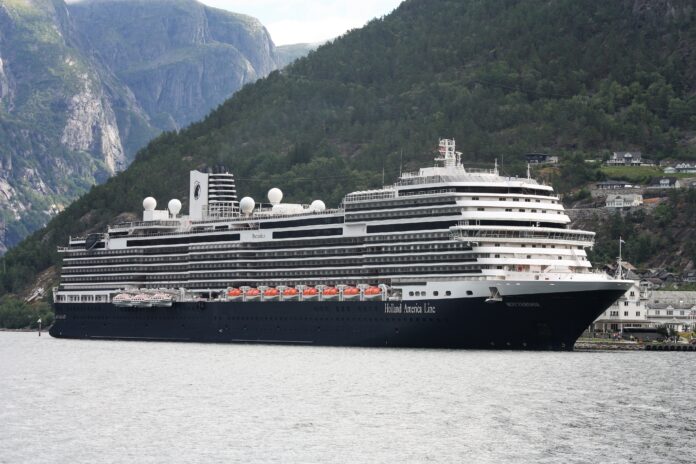A Holland America Line cruise ship, the Rotterdam, docked at Fort Lauderdale’s Port Everglades on Friday after more than a hundred passengers and crew members were affected by a norovirus outbreak, according to the Centers for Disease Control and Prevention (CDC).
The ship, which had 2,614 passengers and 969 crew members aboard, reported that 152 passengers and 17 crew members fell ill during the voyage. The Rotterdam had departed Port Everglades on February 2, embarking on a 12-day journey that included stops in the Caribbean, Colombia, Panama, and Costa Rica, as reported by CruiseMapper.
The CDC requires cruise ships to report outbreaks, and the Rotterdam officially reported the norovirus incident on February 7. This marks the fourth outbreak of the year, following a similar report from a Royal Caribbean cruise ship that departed from Tampa.
Norovirus is a very contagious virus that causes vomiting and diarrhea. It is sometimes called the “stomach flu” or the “stomach bug.” However, norovirus illness is not related to the flu. The flu is caused by the influenza virus. Norovirus causes acute gastroenteritis, an inflammation of the stomach or intestines. Most people with norovirus illness get better within 1 to 3 days; but they can still spread the virus for a few days after.
While the exact cause of the outbreak is not yet clear, the CDC notes that norovirus primarily causes gastrointestinal illness, with symptoms including vomiting, diarrhea, fever, headache, muscle pain, and cramps.
In response to the outbreak, the Rotterdam’s crew took several preventive measures, including:
- Increasing cleaning and disinfection procedures as per the ship’s outbreak response plan
- Collecting stool specimens from affected individuals for testing
- Isolating ill passengers and crew members
- Consulting with the CDC’s Vessel Sanitation Program for guidance on sanitation procedures and reporting protocols
Holland America Line, in coordination with the CDC, is continuing to monitor the situation and implement necessary health and safety protocols.















